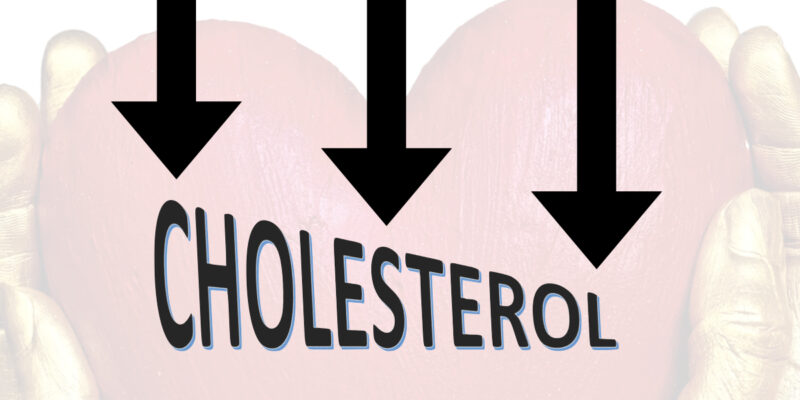Wondering why som vitamin K2 supplements cost 3x more than others? This article explains what makes K2 unique—and why some brands are worth the price.

Are eggs healthy or not?
Table of Contents
Unscrambling the Egg Myth
Thanks to the work of unscrupulous scientists like Ancel Keys, many of my patients who enjoy eggs don’t eat them as much as they’d like out of concern that eating eggs will raise cholesterol. But there’s never been any credible evidence to support this idea. In fact, some evidence supports the opposite; that egg-eaters have lower cholesterol than non egg-eaters. If you’ve not heard that before, it’s because the results were not widely reported.
I only heard about the research listening to a satellite radio station specifically for doctors, called ReachMD.com during an interview back in 2009 entitled “Unscrambling the Egg Myth.” On this show, two doctors discuss a range of evidence debunking the myth that eating eggs raises cholesterol. As described on the site, this should be required listening for all cardiologists:
For much of the past 40 years, doctors have been telling patients vulnerable to heart disease to avoid eating eggs because of a mistaken belief that cholesterol-rich eggs increased one’s risk of coronary heart disease. Guest Dr. Stephen B. Kritchevsky, director of the Claude D. Pepper Older Americans Independence Center supported by the National Institute on Aging, reviews the scientific research concerning cardiovascular disease and egg consumption with host Dr. Larry Kaskel.
This article is continued below...(scroll down)
Key take home quotes that address two important questions:
Do eggs raise cholesterol levels?
“[When we] survey people and look at what they eat and compare that to their cholesterol levels, we find typically either no association or in many situations an inverse association such that people, who are eating more eggs actually have lower cholesterol levels than people, who are not eating eggs.”
Does eating eggs cause heart attacks or strokes?
“National Health Statistics collected here by our own Federal Government…found no association between egg consumption and cardiovascular disease.” And a more recent study in China found egg consumption actually lowered the risk of heart attacks and strokes.
What about diabetics?
The doctors describe a subgroup of diabetics evaluated in a WHO study where it appeared egg eating did cause a slightly increased risk. That may be real, or it may be a statistical blip due to one of many potential confounders. I suspect the latter, and this opinion is based, in part, on the fact that the majority of my own patients with diabetes (not just prediabetes) fast-fooded their way into the disease, and when they eat eggs, they come in the form of a McMuffin along with a giant soda on the side.
One reason it’s important to be wary about limiting eggs for diabetics in particular comes from the fact that diabetes is a disease of carbohydrate intolerance, and eggs are most often eaten at breakfast when they would replace a high-carb option.
Because diabetics have more atherosclerosis in part because they also have less antioxidant capacity, it’s particularly important for diabetics to optimize their antioxidant status. Making sure to include at least 4 cups of fresh veggies each day will hellp to assure you get enough antioxidants to help protect your body’s lipoproteins (the vehicles that carry cholesterol), thus reducing the chances that the cholesterol and fats in the eggs will contribute to vascular disease.
ReachMD members can listen here: https://reachmd.com/programs/clinicians-roundtable/unscrambling-the-egg-myth/3669/
And for non-members, you can read the full transcript here: https://drcate.com/wp-content/uploads/2016/12/unscrambling-the-egg-myth.pdf
A 2016 study suggesting that just adding a single daily egg can reduce risk of heart disease and stroke http://www.tandfonline.com/doi/full/10.1080/07315724.2016.1152928
Conventional Eggs Versus Pasture-Raised
While the interview is full of important information, like most folks engaging in discussions about health effects of animal foods, Dr. Kaskel and Dr. Kritchevsky do not address animal treatment, feed, etc.
It’s important to realize that factory farms generally treat their hens poorly, and when the animals you eat are poorly cared for, your body tallies these inhumanities in the form of reduced nutritional value–for lack of sunlight and adequate feed–or increased toxic exposure–from antibiotics used to accelerate weight gain in chronically stressed chickens.
Buying organic does not guarantee humane treatment. I recommend you buy eggs from local farmers who you can actually visit, so you can judge the conditions under which the hens live for yourself. It may sound like a hassle, but you might be surprised how much fun you have getting to meet the people who produce your food!
And yes, better quality eggs will cost more. But even the most expensive eggs you can buy will still be under $10 per dozen, making them less than a dollar each. And when you consider the quality of nutrition you get from an egg, particularly a pasture-raised egg–which will generally have more omega-3, vitamin A, D, and K than eggs from factory farms–ounce for ounce, eggs are one of the best food investments you can make.
A great article comparing yolks from conventional versus pastured eggs http://healthbitesonline.blogspot.com/2015/07/an-eggsperiment-commercially-produced.html
This Post Has 7 Comments
Note: Please do not share personal information with a medical question in our comment section. Comments containing this content will be deleted due to HIPAA regulations.



















Hey,
Do you see a significant difference in nutrition based on cooking method? Scrambled vs. boiled. Sunny side up vs. poached?
I too have an issue w/ eggs…I got tested by a holistic nutritionist and she told me the culprit was the egg whites I am sensitive to.Now,I also use the highest quality local farmer’s eggs too – and that has lessened my symptoms which is sneezing. histamine-issue. But maybe it’s the whites vs the yolks – we must get very specific on our nuances in foods. The lectins, proteins, and other facets of foods are important to know. Good luck!
Supposedly your products can’t be certified as organic if that’s the case….Is the dairy farmer you’re talking to an organic farmer?
The issue with organic or not, concerning eggs, or anything that feeds on grass, is that is NOT organic, it has been sprayed with RoundUp. So, the animal ingests that, and then we ingest it…
Info from a dairy farm owner.
Not on topic, but you mention corn masa tortillas as acceptable carbs but the ingredients list states the ingredient as corn masa flour. Is that the same?
That is an unusual reaction that would not be considered a typical allergic type reaction.
I have been eating very clean for the past year, with my main goal of being to increase the quality of my hair. For the most part, I can say its working very well. I’ve pretty much followed many of your recommendations, but I am confused on something. I seem to have some kind of an allergy to eggs. Everytime I remove eggs from my diet, and reintroduce them I shed more hair than normal. Btw, I am eating the highest quality eggs I can buy ( Ive even tried duck eggs) Ive tried this experiement several times in the past year with the same result each time.
My question is: Could I have a sensitivity to eggs? Or maybe an allergy ?